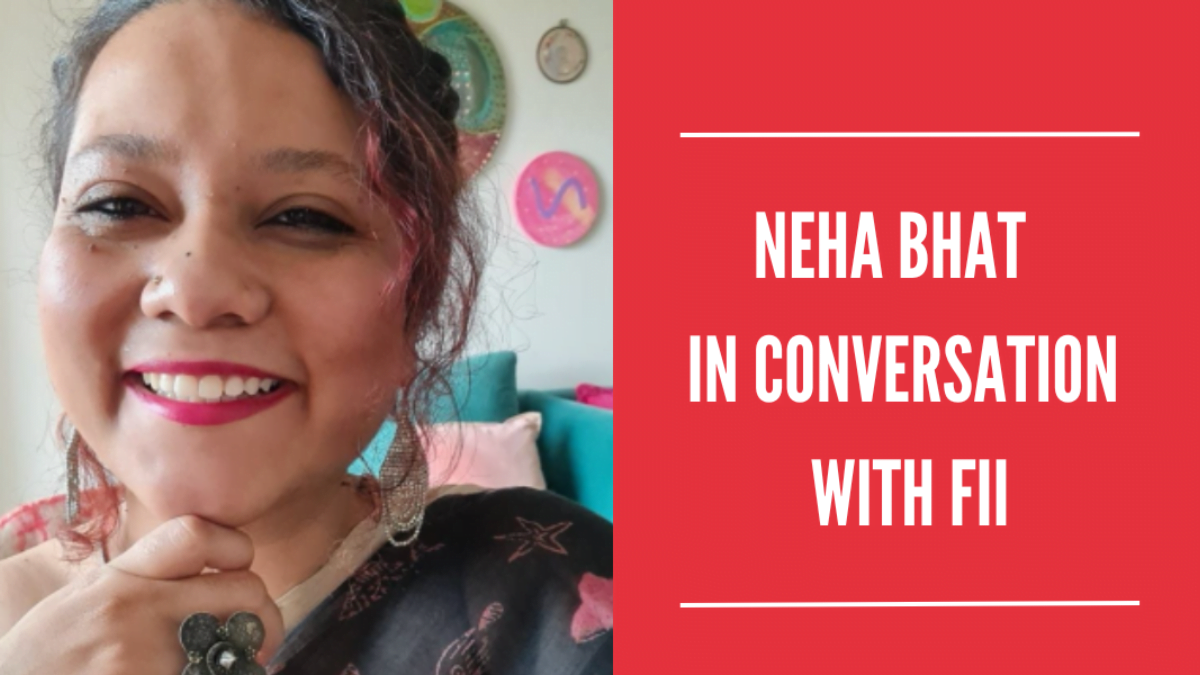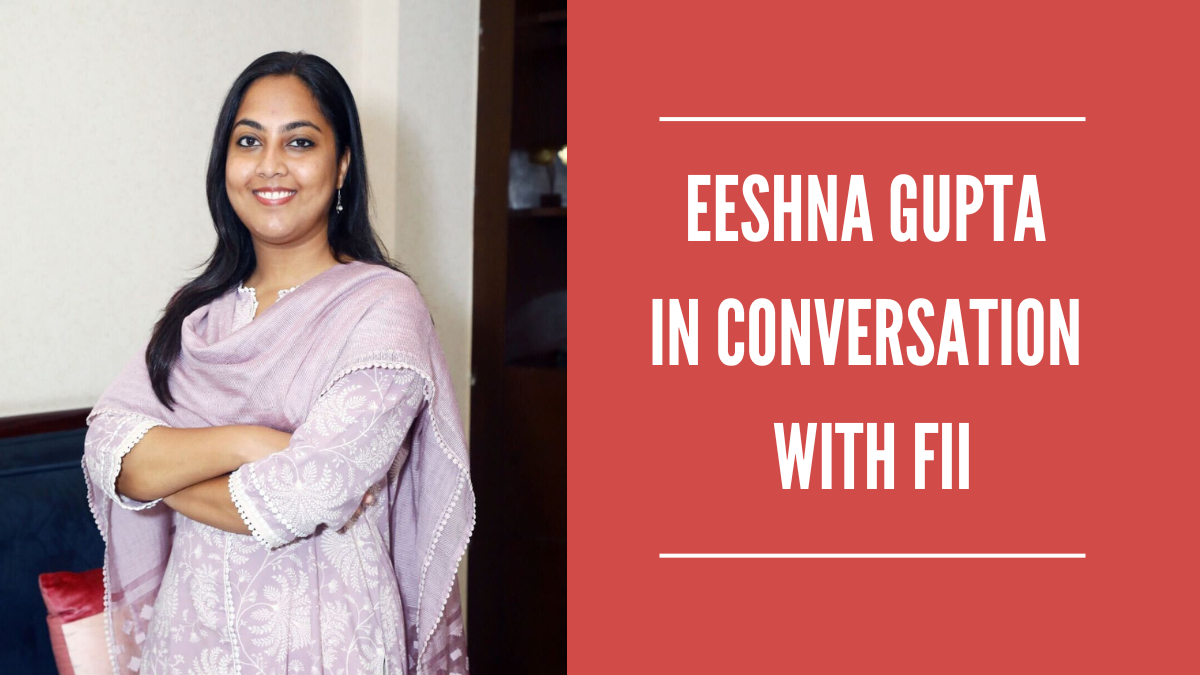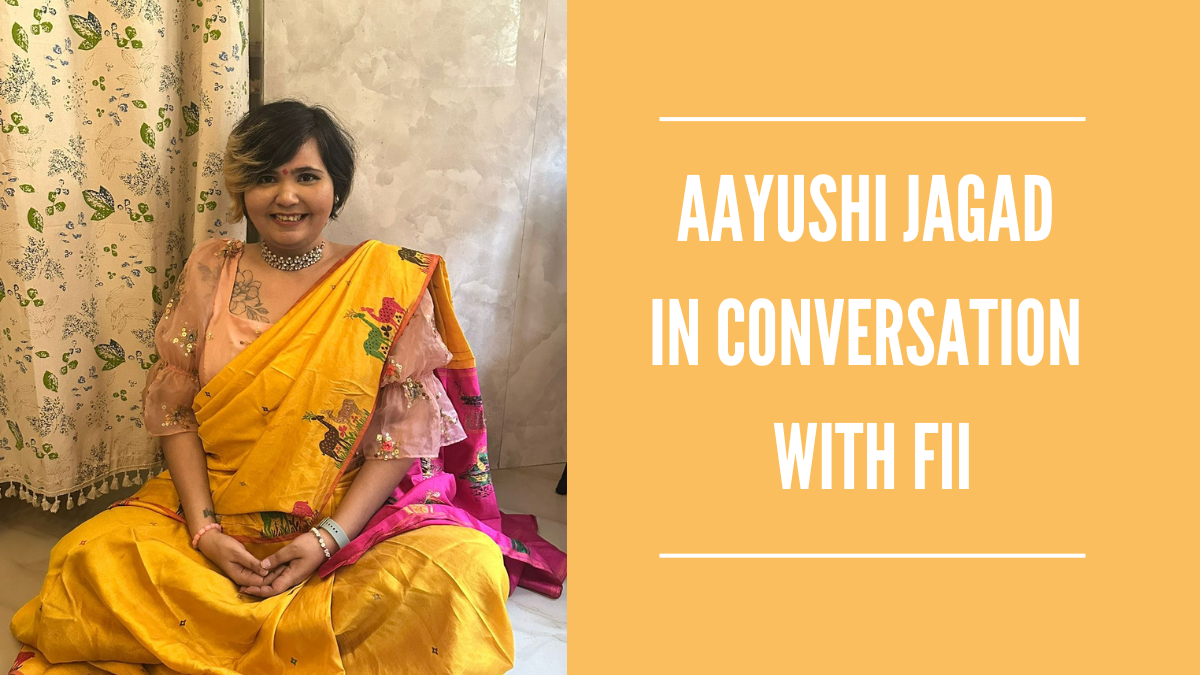Neha Bhat is a trauma-informed sex therapist who works with her clients through the format of art. She goes by the name of the Indian sex therapist and spreads awareness through Instagram, blog posts, education and training. She is also an author. Her first book, Unashamed, will be out in 2024.
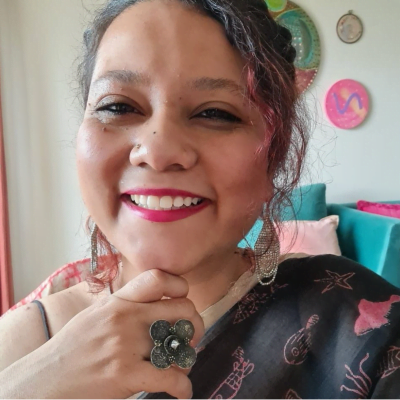
In this interview, she talks about the unique niche of art-based therapy she has carved for herself, the current problems that India experiences in terms of emotional, mental, and sexual health, and proposes approaches that will enable Indians to access help.
FII: Can you talk a little about what your work involves?
Neha Bhat: I was never attracted to conventional therapy personally because of the kind of family I come from. Mine is a family of therapists and social workers. I grew up with a kind of understanding that therapy is a place where people bring a lot of problems home. It’s a lot of talking about people’s deep, dark secrets. It’s hand holding them. It’s advice-giving. This didn’t appeal to me, so I chose to study art. While studying art, I realised that there were a lot of people who were coming to me and telling me all sorts of things that I wasn’t prepared to handle as an artist. I decided to go a little bit deeper into the field of trauma.
Therapy is not just sitting there and asking someone to complete a worksheet. Although there’s nothing wrong with that, that approach never worked for me. I realised that one can use their body, relationships, spiritual self, music, craft, stitching, embroidery, painting, dance, and much more to heal. I decided it was time to study these approaches. This brought me into the field of art-based therapy.
I completed one master’s in India and then I went and did a second master’s abroad. This art-based approach is different in that it reaches people’s deepest places which are hard to name. In my work, I realised that because I was a queer person myself, I was so interested in talking about sexuality. I would very bluntly ask people about their sexuality and would realise that a lot of them hadn’t even thought that sexuality is the thing they can discuss with their therapists because it was considered too private a matter.
While using art and the format of play, which is a major part of art-based therapy and expressive art therapy, I realised that people were able to reach places that they hadn’t opened doors to, that are hard to put words to.
Neha Bhat
While using art and the format of play, which is a major part of art-based therapy and expressive art therapy, I realised that people were able to reach places that they hadn’t opened doors to, that are hard to put words to. Our culture is non-verbal. We are a lot about acts of service, showing up for people during their bad times, and being there for each other in very concrete ways. I realised that this modality of not directly talking, but talking around something and allowing the talking to come later through play was working very well.
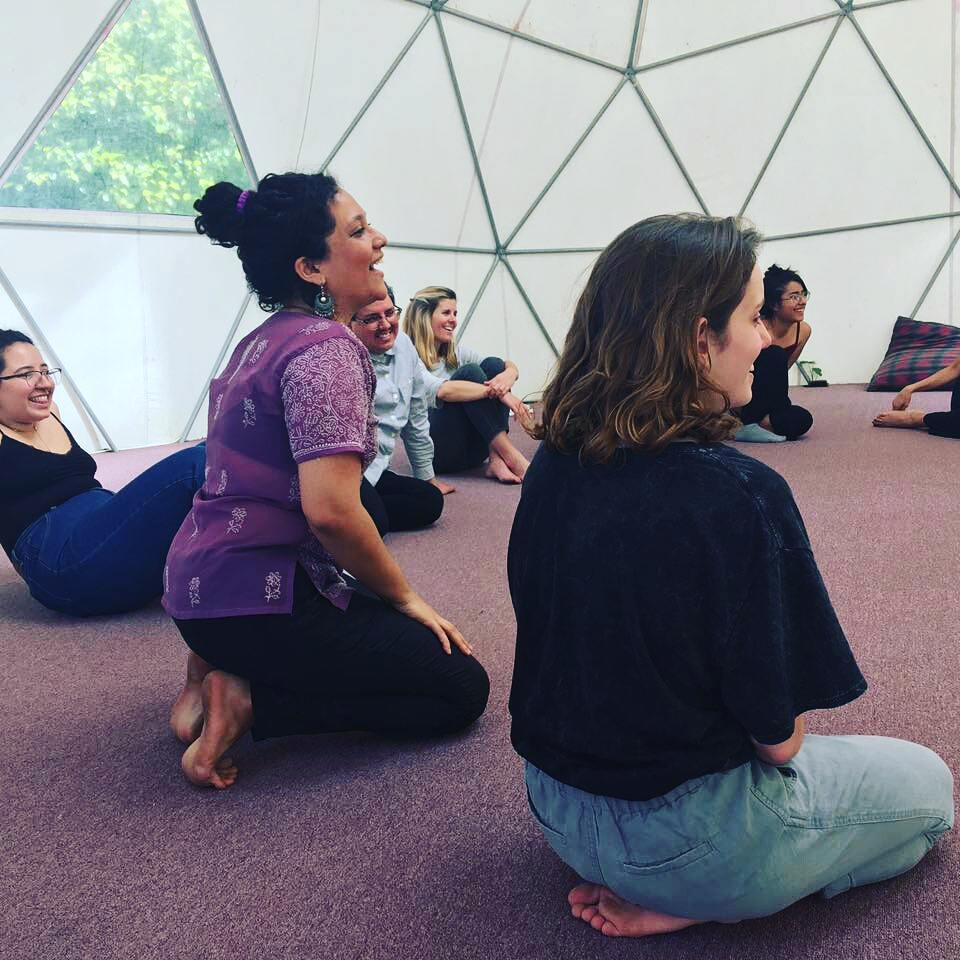
FII: What are the prevalent perceptions, or rather, misperceptions around the kind of work that you do? Have you experienced hate or trolling because of these misperceptions?
Neha Bhat: The problem is that because the kind of work I do is such a unique niche, it requires someone to have already done some work on themselves to access what I am talking about. My stances get misperceived and misunderstood, I would say, 90% of the time.
Let me dive a little deep into this problem. In India specifically, therapy is very psychopathologised. Therapy and psychology bring to mind all big institutions such as St. Johns and NIMHANS. There’s nothing wrong with these institutions, but the idea was that something needs to be drastically wrong with you to access a therapist was the prevalent belief across the board. I would say in the last five years, the wave has really gone in the other direction where people are a little bit less destigmatised. People are OK talking about their problems and personal lives, especially millennials and Gen-Zs.
The perception has now changed: the belief is that therapy should make me feel good. People see it like an ice cream that they should have every Sunday because their life is so hard that therapy should make them feel better every session. That’s just not realistic. The work is actually to put the job in your hands. Therapy is to teach the person how to handle their own life and this should not be a life-long relationship. The therapist-client relationship is supposed to be short-term.
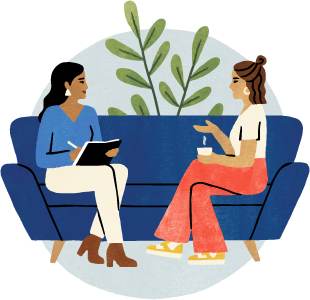
Owing to this perception, there’s a lot of misunderstanding about what therapy should achieve. There is a lot of hate I get specifically because of this. Also, I don’t work with groups of people. I work with individuals across the political, caste, race, and kink spectrum. There are a lot of intersectionalities that come into my work which confuse people. They ask that if I am pro-(insert certain identity), how can I work with people who identify differently or who have a different belief system? This is not relevant to the job of a therapist, in my opinion.
FII: In a generation which has come of age in this social media era, people go through a very reactionary phase which makes them priggish. How can one develop empathy for people who feel threatened by new ways of thinking or different lifestyles?
Neha Bhat: Firstly, it’s important to kind of cognitively understand that if somebody is difficult for me, I am also difficult for them. It applies both ways. We have this kind of dual problem that we want individuality, but we also want social contact and those are always going to be in tension. Even if you find a best friend who thinks exactly like you, who has all the identities that you have, tomorrow there can be some new knowledge that can challenge something in that relationship. One has to deal with bringing in compassion, and empathy, and learning about the other person’s perspective.
Generally, emotionally healthy human beings do not find new information hard. That is what emotional health is about that you are able to see somebody else’s perspective and not be threatened. I may have a certain worldview and my mother may have a 100% opposite worldview. I have to understand that if I am feeling that challenged, she is feeling that challenged as well. If we are both constantly going to accuse the other person of being more challenging, then nobody’s heard.
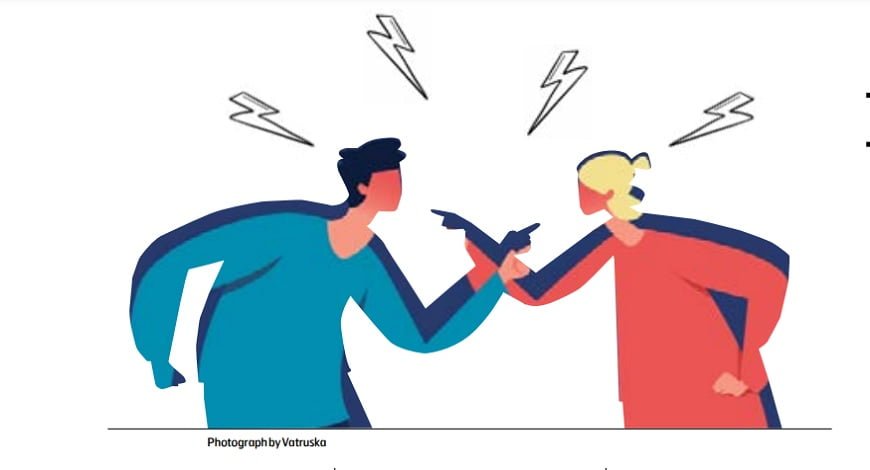
So the next level of healing is that somebody has to take the first step to build clear boundaries, to be able to say, ‘I am able to listen to you even though you challenge me.’ And in that, something shifts. That’s the inner work aspect: some repair happens. I don’t tell people what they should do, because often people get very defensive. The moment there’s a “should”, there will be like a thousand people saying, ‘Wow, this person is horrible and arrogant.’
FII: Apart from tweaking the syllabus here and there, what do you think can the Indian education system do to make people aware of how much our ideas of sexuality and gender are problematic and colonised?
Neha Bhat: I am an advocate from a trauma lens. If there is more mental health language just accessible to people at the grassroots level, then the bridge needs to happen not just in the syllabus, not just in the teachers, but also at home. There is a lot of dissonance that young people go through where the parent imposes on the young person who, as a result, might have a completely like other life going on. That’s incredibly sad. They will come to somebody like me for help, but I am not a free service charity. I have a fee. So what about the person who can’t afford me at all? How does that person get help? It’s quite dependent on the individual right now: whoever can access help should access help.
Now that we are economically healthier as a country, I think there needs to be more connection to this idea that we are suffering and we don’t need to suffer. As opposed to our parent’s generation, more of us have access to money. Because we have access to money and stability, could we now also transfer that access to emotional health and mental health? Now, what does that look like for me as an idea, which I work on with the mental health boards all the time, is to say, ‘Can we empower the grassroots teachers to actually take the trauma of the young kid seriously?‘

If there is a child around 3 or 4 years old who’s yelling in class, let’s not dismiss it. Let’s actually look at it. Let’s send caseworkers to that person’s house. Let’s see what could there be. It’s often child sexual abuse or domestic violence in the family. There are so many challenges that the family needs support, right, which is why they are also holding on to these colonial ideas of sexuality and gender very tightly because it gives them a very nice sense of “this is right, this is wrong”. Instead of that, let’s support our citizens where they feel they are in trouble. That is my work. I also personally do a lot in this area where I go to different organisations of different political affinities. I do a lot of workshops at the grassroots so that people can understand that it’s OK that something’s wrong. This means that we can tend to it. It’s not a moral problem; it’s a stability problem which we need to take care of one step at a time.
FII: In today’s India, colonial, social and patriarchal forces function to repress sexuality among people. Many people aren’t even aware that there is so much on the interior that is unprocessed. So many people avoid acknowledging that they are fundamentally sexual beings impacted by ideas and conversations around sex in the pursuit of purging themselves of anything that is “dirty” or “morally corrupt”. What will it take to build a more open society so that such acknowledgements become more conceivable, and more admissible for people going through it?
Neha Bhat: Realistically, what it will take is more technology. That said, it will not take any philosophical or intellectual change because that tends to be very elitist. It tends to be small and I am part of that. My work is very small right now. I am very supportive of the idea that let people do what they can. Let people use technology in ways that make sense to them. Let people have access to even gurus that our urban population judges so badly. I think that’s fine, I think every guru cannot be trauma-informed because that’s again, elitist knowledge.
In India there is no dearth of that. I think in your question itself there is an urbanisation, which is fine because we are urban people. Different communities of people in India have their own systems. Mental health language may be new, but the awareness that ‘I need to do something‘ is not new. India is a country of at least six major world religions, for many, while there is religious trauma, religion and spiritual practices also form a major part of people’s mental health practices. The urbanised elite is academically trained to look down upon this as “less” and irrelevant, undoing which is part of the decolonial practice.
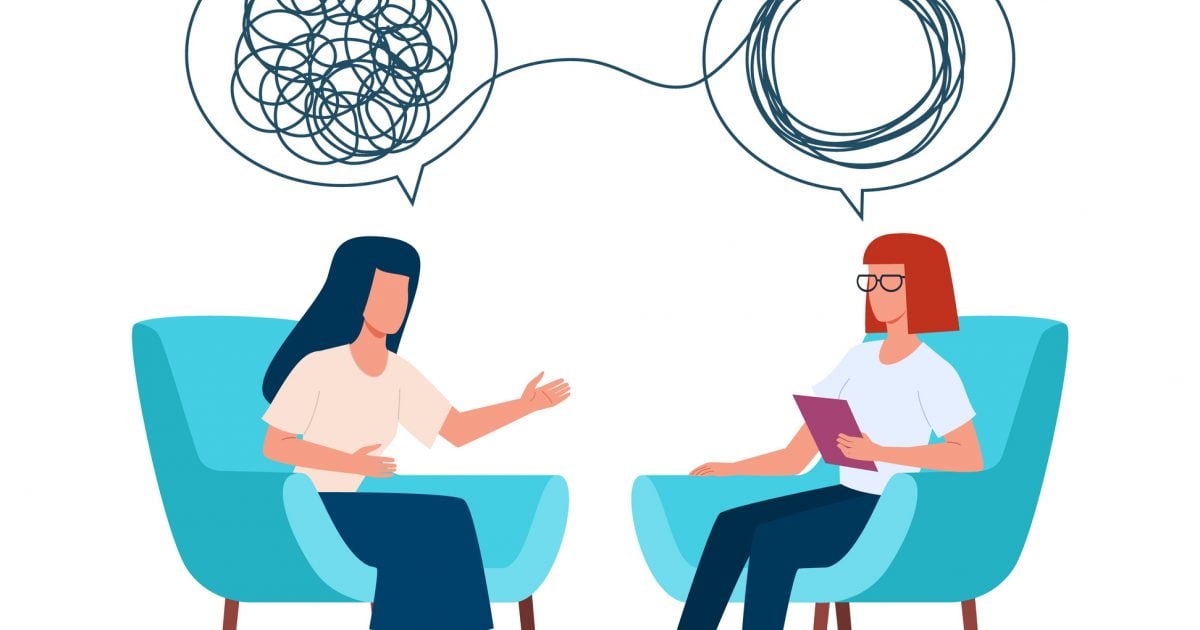
I don’t see some major revolution coming in and trying to change people’s minds. That’s not going to happen. What’s probably going to happen is that there is going to be some beautiful technology, just like now we have dating apps which reach everywhere in the world. We are going to have more education apps which will reach maybe younger people who don’t have access to computers. You can access this on the phone. Then we’re going to have some bridge-building conversations in the next couple decades all over the world and it is going to be gradual. Social change is never instant. People in cities, like you and me, will have to do a lot of work to provide accurate information.
FII: Can you talk a little about your work in clinical training and public education?
Neha Bhat: I am currently training young therapists (younger in terms of experience). This training and education are intended to meet the challenges that are relevant to our country right now. A lot of our training has been geared towards Eurocentric language, which is then meeting somebody else’s problems in ways that don’t even make sense in an Indian context. For example, I write a lot about boundaries and what they mean in the Indian context specifically because people can’t afford separate apartments to get away from their families.
A lot of our training has been geared towards Eurocentric language, which is then meeting somebody else’s problems in ways that don’t even make sense in an Indian context.
Neha Bhat
I am also doing a lot of clinical support groups and supervision groups. In therapy, we have this thing called supervision where after you graduate from your training, you have to sign up with somebody senior in the field who you like and then you tend to take your cases to that person and work on your cases consistently with them. I have been getting a lot of feedback from younger therapists saying that we just need a voice that can actually guide us.
Secondly, I have been conducting master classes, which are every couple of Sundays. These are 2-hour master classes, and they are done differently for different groups. I do some for advanced therapists, some for medium-level therapists, some for interns, and some for students. I do some for just non-therapists to learn trauma language.
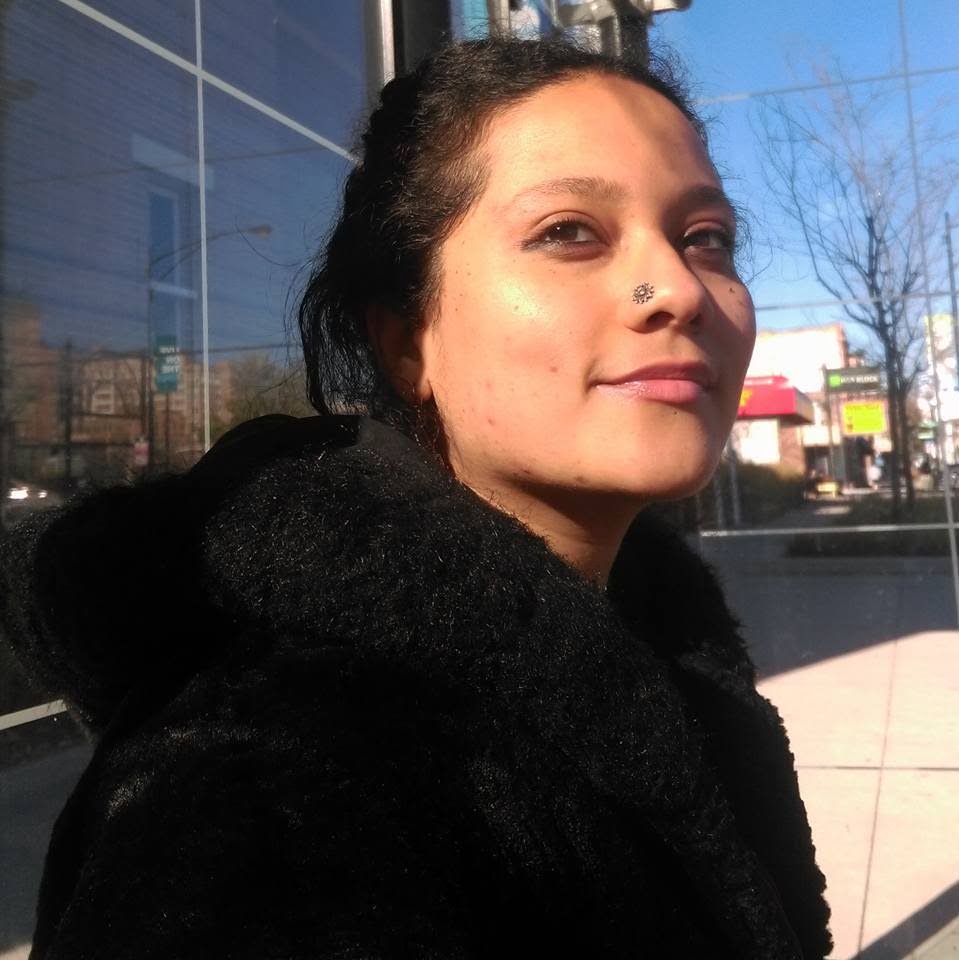
Thirdly, I teach. I teach at St. Xavier’s, Ambedkar University, University of Chicago and other places in the world because so many people are open to this sort of innovative approach. Apart from that I have clients, but they are not very big in number because I don’t run a huge, 200-people practice.
FII: You also deal with perpetrators of abuse, which is a side of abuse not talked about much. Can you perhaps comment a little bit about that?
Neha Bhat: Let me bust a myth again. This is not new. This is indigenous in its approach where tribes do not just leave people out of their community. Especially in India, there is a lot of clinical mental health research. Take for example Suman Fernando’s Mental Health, Race and Culture. Fernando is a Sri Lankan therapist who talks about decolonial mental health, which looks like having community-based conversations. In the US or globally, in Latinx cultures, brown cultures, gulf countries, etc. it is very common to work with people who have caused harm rather than just telling someone to “get lost, find your own house, do your own thing, go to jail.”
In the US or globally, in Latinx cultures, brown cultures, gulf countries, etc. it is very common to work with people who have caused harm rather than just telling someone to “get lost, find your own house, do your own thing, go to jail.”
Neha Bhat
Firstly, government support doesn’t exist in India. That is not the culture here. Government is a new idea here. This is a 75-year-old young country. This is not an old country. Thirdly. when that conversation happens in India, there is less support for the survivor, and there is more support for the perpetrator. They are asked to say sorry, do some repairs, and bring things back to normal.
In families, if it’s an uncle, the father or the mother in your home that has caused the abuse, it’s repressed: Don’t talk about it, but try to heal that problem in some other way and just walk around the issue, which is why it’s so unprocessed. In India, working with the perpetrators of abuse is nothing new. People are simply not labeling this as “perpetratorship”.

I partner with few agencies across the world and my groups are focused on people who have caused rape, who have caused harm in terms of two things: acute rape, gang rape or even sexual abuse in terms of boundary-crossing. Because the MeToo movement was so popular at the time, we thought it’s beautiful that more and more survivors are coming out. But, what happened after that? That’s when I thought of this idea. I got a lot of pushback from my own therapists, even in the US. I pushed on and it was successful. Now in India, I run these groups once in six months. We have a waitlist. I take people on for around 16 to 20 weeks and it’s a very intensive treatment program.
About the author(s)
Shakti (she/her) is an English major and an aspiring tea sommelier. She loves reading poetry and drama and can be found with a Kindle most time. She intends to become a teacher of humanities and is passionate about literature, films, politics, and history. In her free time, she has been caught watching cringe content, however, she fervently denies these claims.
